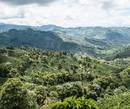News

Representing the most carbon-dense terrestrial ecosystem, peatlands can be found in all climatic zones across 169 countries worldwide. Their sustainable management, restoration and conservation play a crucial role in the process of tackling climate change, as drained and degraded peatlands represent a major source of greenhouse gas emissions, releasing an estimated 5 percent of anthropogenic greenhouse gas emissions globally. As more and more countries are joining the efforts to halt further conversion and restore this precious type of wetlands, the need for robust tools and integration of various tools into a holistic land use monitoring system has never been more...

As forests continue to disappear at alarming rates, a possible solution is at hand: the recognition and expansion of collective tenure rights for local communities and indigenous peoples, in a context of overall improved land and forest governance.
Join us on 29 May 2019 (16:00 – 17:30 CEST) to learn concrete experiences from the ground (Peru, Nepal and Tanzania) and perspectives from international key experts (CIFOR, McGill University, Rights and Resources Initiative, Tenure Facility, World Resources Institute, and FAO). Participate interactively, post your questions and share your own views to enrich the discussion.
Register here: https://forms.gle/UBQ11utGQJ7DcHnw6
DATE: 29 May 2019
TIME:
16:00 – 17:30 Rome (CEST)
9:00 – 10:30 Panama/Lima...

13 May 2019, Kyoto - A paradigm shift to achieve zero deforestation, restore large areas of forest and reduce emissions from deforestation and forest degradation is required to fulfil Paris Agreement climate change goals, a session at the Global Landscapes Forum (GLF) in Kyoto heard today.
Hiroto Mitsugi, FAO Assistant Director-General, Forestry Department, highlighted the importance of approaching development holistically, noting that the sustainable landscape approach is key to reaching climate resilience and ecosystem restoration goals.
“To reach these goals requires a new way of looking at land use, of working together across sectors, and of doing business,” Mitsugi said in a speech...

A great emphasis is currently being placed on achieving transformational change and paradigm shift through policies and measures to fulfil the Paris Agreement goals and progressing on the UN 2030 development agenda, particularly by the world’s largest climate mitigation and adaptation facility, the Green Climate Fund (GCF). Initiatives to achieve zero deforestation, restore large areas of forest and reduce emissions from deforestation and forest degradation through activities such as REDD+ are showing potential to be catalysts for the much needed paradigm shift. Engagement in such efforts by developing countries will be key for ensuring sustainable and long-lasting sectoral and cross-sectoral...

As countries step up their efforts to fulfill commitments made under the Paris Agreement on Climate Change and Agenda 2030, the cross-cutting theme of improved forest governance is at the centre of efforts to halt deforestation and forest degradation as well as action to achieve Nationally Determined Contributions and the Sustainable Development Goals (SDGs).Speaking during a panel discussion of the European Commission’s high-level conference “Our Forests, our Future, sustainable forest management to address societal challenges”, Tiina Vähänen, Chief of the Food and Agriculture Organization of the United Nations’ (FAO) Forestry Policy and Resources Division, spelled out FAO’s well-established commitment to...

